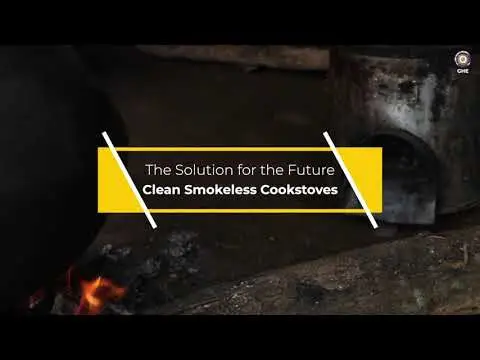The Garo Hills region of India, with its dense forests, abundant wildlife, and cultural heritage, offers tourism potential for the Indigenous communities that reside there. However, the widespread use of inefficient wood-fired cookstoves releases hazardous emissions, causing serious health risks, driving forest loss, deepening gender disparities, and perpetuating high poverty rates. This project addresses these challenges by introducing cleaner cookstoves that require less firewood, improve air quality, and shorten cooking times. It also empowers rural communities through diversified job opportunities, sustainable tourism development, and enhanced quality of life.
Where & Why
The state of Meghalaya, located in northeastern India, is home to some of the country’s last remaining stretches of subtropical forests. Indigenous Garo communities have lived in its Garo Hills region for generations, known for its dense forest and rich wildlife.
The Garo Hills hold immense untapped tourism potential but remain off the beaten path for most travelers. With verdant forests where animals such as wild elephants and Hoolock gibbons roam, the region offers attractions and activities for nature lovers, including camping, trekking, caving, and bird-watching. Cultural festivals and immersion programs provide opportunities to connect with local communities and learn about their traditions.
Despite these offerings, the region faces economic challenges that impede tourism’s expansion. Around one-third of Meghalaya’s residents live below the poverty line, with poverty rates in rural areas almost double those of urban areas. The unemployment rate in Meghalaya is nearly double the national average, with the majority of the population depending entirely on agriculture for their livelihoods. Many locals can’t afford to invest in the sustainable tourism infrastructure, marketing, and training needed to receive visitors and diversify their economy.
Limited financial resources also restrict access to modern technologies such as electric cookstoves. As a result, many Garo families use old, inefficient mud stoves that require large amounts of firewood. Burning firewood depletes the region’s forest resources and produces heavy smoke that pollutes indoor air. This poses significant health risks, particularly for women and children, who face increased respiratory and other illnesses from prolonged exposure. In 2019, over 600,000 people in India died from household air pollution, accounting for roughly 7% of total deaths. Nearly three-quarters of Meghalaya’s residents rely on solid fuels for cooking, underscoring the urgent need for cleaner solutions. In addition to health problems, the traditional cookstoves require women and children to spend hours cooking and traveling long distances to gather wood. This takes their time away from pursuing education and work, further entrapping them in the cycle of poverty and limiting their opportunities.
These burdens on women stand in contrast to the Garo communities’ matrilineal structure where women are property owners and inheritances are passed through the mother. Despite this cultural tradition, Meghalaya has some of the lowest gender equality rates in India. Women have minimal representation in political decision-making and are often excluded from leadership roles in modern and traditional governing structures. The reliance on traditional stoves is one example of how unpaid domestic responsibilities disproportionately fall on women, increasing their economic dependence and limiting their education and leadership opportunities. Bridging the gap between the region’s cultural respect for women and the systemic inequalities they face is essential to fostering gender equity and advancing sustainable development in the Garo Hills.
How & Who
This project aims to reduce deforestation, lower CO2 emissions, and enhance the well-being of communities in the Garo Hills by providing 20,000 improved cookstoves to rural households. The new cookstoves burn fuel more efficiently, producing less pollution and harmful greenhouse gases like carbon dioxide and alleviating pressure on forests. This creates a healthier, cleaner cooking environment by reducing smoke inhalation. Additionally, the cookstoves utilize less firewood and cook food faster, reducing time spent collecting fuel and preparing meals.
The cookstoves provide safer living conditions for women and children while freeing up precious time for other productive livelihood activities. In addition to addressing daily challenges, the project seeks to empower women by involving them in community decision-making and encouraging them to take on leadership roles. By fostering a supportive environment, it aims to inspire other women to follow suit and actively shape the future of their communities.
Building on its commitment to community empowerment, the project also creates economic opportunities that enhance social standing and raise local quality of life. This includes jobs for skilled and unskilled workers who distribute and maintain the cookstoves. So far, over 200 job opportunities have been created, with another 100+ anticipated during the project’s lifespan. Furthermore, funds from carbon offset sales are invested in tourism initiatives, such as establishing eco-homestays and experiences, training community members to run them, and creating market linkages. This enhances the region’s ability to welcome visitors, opening up a new revenue stream, diversifying the local economy, and incentivizing the protection of its natural environment. The following steps have been taken as part of these sustainable tourism development efforts:
- Twenty young men and women have received Homestay Training and set up homestays to cater to the growing tourism in the region.
- The region has been opened for corporate expeditions involving employees traveling to the Garo Hills as part of an immersive cultural and team-building activity.
- New multi-day itineraries involving homestays, gastronomy, cultural immersion, and impact are being developed and marketed to sustainable tourism operators in the region.
These initiatives create a healthier and more sustainable future for Garo communities and the planet by alleviating pressure on forests, reducing pollution, and empowering people.

Environmental Benefits
- Mitigates climate change by reducing the burning of wood fuels
- Protects ecosystems and biodiversity by reducing the harvesting of forest resources

Community Benefits
- Improves health by enhancing indoor air quality
- Improves gender equality and empowers women to take on leadership roles
- Creates economic opportunities and diversifies livelihoods for Indigenous and rural communities
- Trains communities on hospitality skills and promotes sustainable development that improves the local tourism product
Project Type

Energy
Location
India
Annual CO2 Reduction
94,759 metric tons CO2e (expected annual average for crediting period)
SDGs Supported
Verification Standard
Project Developers
Global Himalayan Expedition
Project Documents
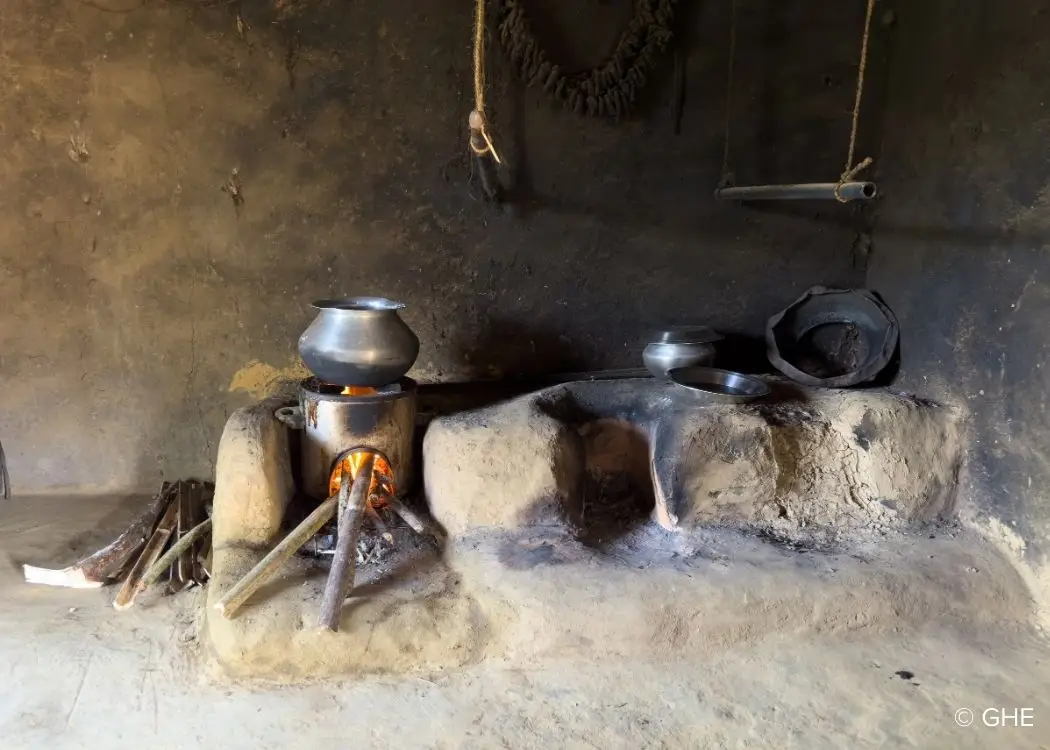
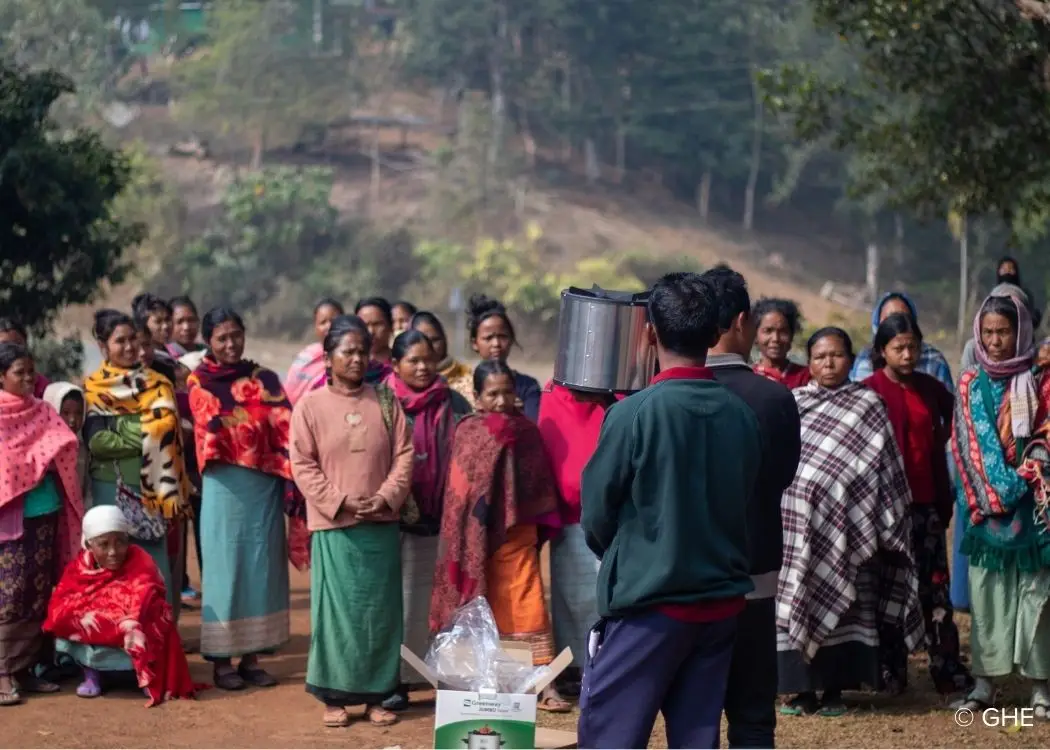
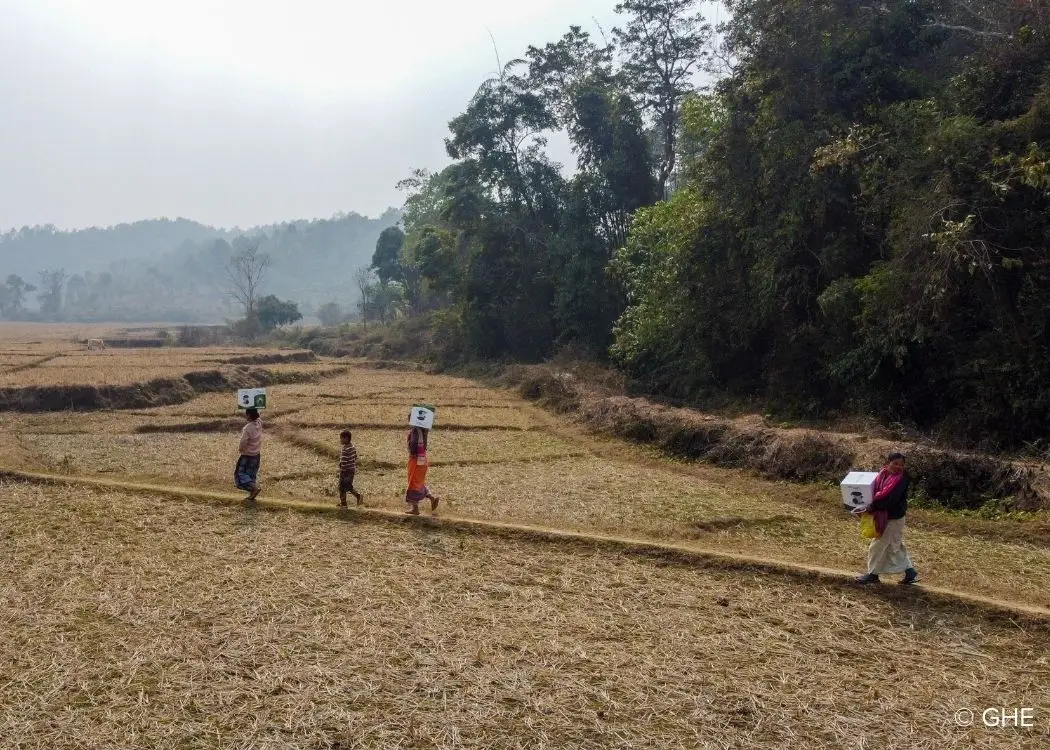
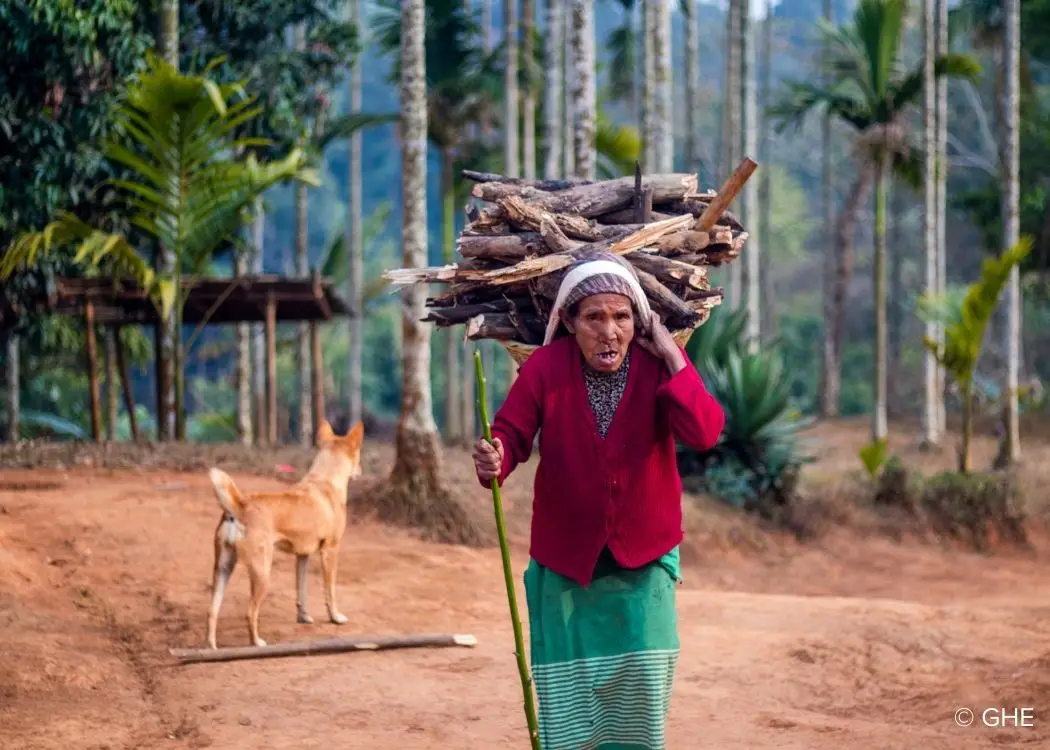
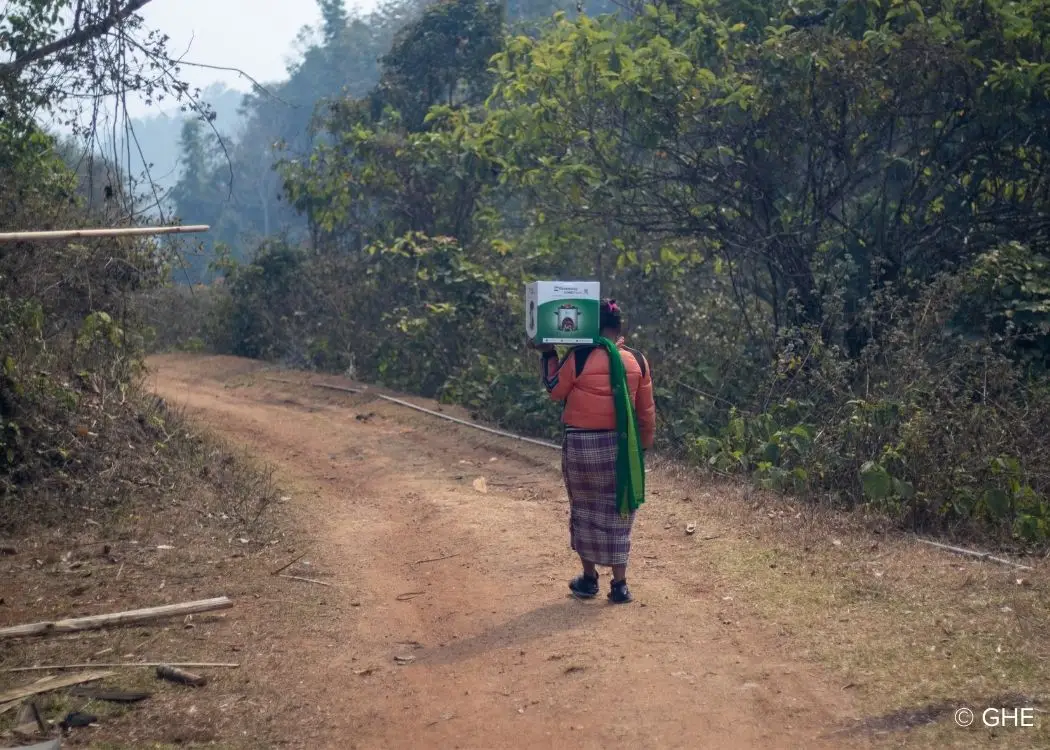
Related Travel Experiences
These immersive experiences offer a firsthand opportunity to participate in project activities, explore local challenges, and see the real-world results on the ground.
Garo Impact Expedition
The Garo Impact Expedition takes visitors into the heart of the Garo Hills, combining adventure, cultural immersion, and sustainable development. Visitors will explore limestone caves, cascading waterfalls, and paddle through a breathtaking canyon. Along the way, they can observe diverse bird species and experience Khasi traditions in a sacred forest.
Travelers will help deploy the clean cookstoves in local villages, offering a hands-on opportunity to learn how carbon offsets support a cleaner planet and improved living conditions. Visitors will also share meals with local families and experience cultural performances, fostering a deeper connection to the region’s people and heritage.

Offset your Travel Footprint
Calculate and offset the carbon footprint of your flight in seconds via our online carbon calculator. Already know your carbon footprint? Click the option to “offset now.”










